How to rebuild a city with Karam Alkatlabe

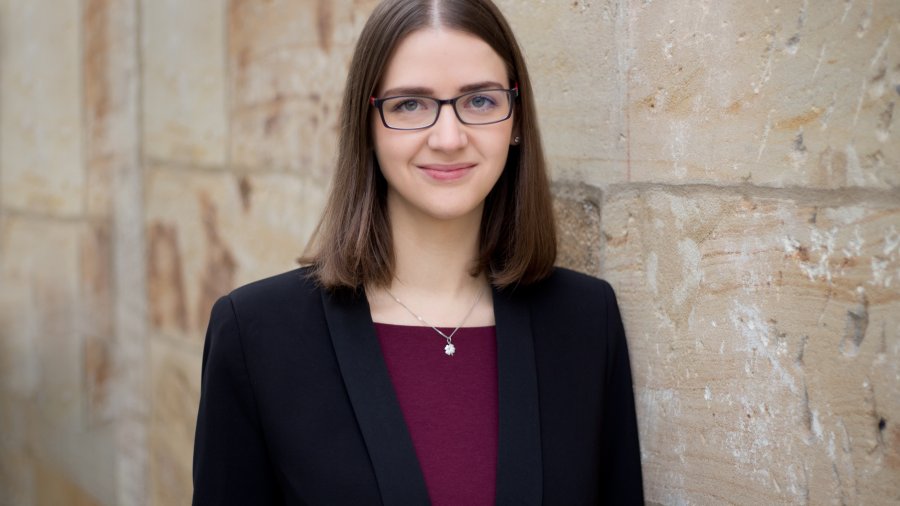
BSc MSc PhD
Hannah is an inorganic chemist working as a postdoctoral researcher at the Yusuf Hamied Department of Chemistry. Her research focuses on the intersection of coordination and supramolecular chemistry.

Hannah received her BSc in Chemistry and MSc in Materials Chemistry and Catalysis from the University of Bayreuth (Germany) in 2015 and 2017, respectively. Driven by her fascination for coordination chemistry, she performed a PhD in the workgroup of Professor Dr Birgit Weber at the University of Bayreuth, supported by a two-year Kekulé-Fellowship from the ‘Fond der Chemischen Industrie’. Thereby, she focused on iron(II) spin crossover complexes and fluorescent sensor materials based on 3d transition metal complexes. In April 2022, Hannah defended her PhD thesis with summa cum laude, and was awarded the Bavarian Culture Prize.
To gain further experience and deepen her knowledge in the field of supramolecular chemistry, Hannah started a postdoctorate in the group of Professor Dr Jonathan Nitschke at the Yusuf Hamied Department of Chemistry in July 2022. Thereby, she will develop and study new types of coordination cages that can be readily tailored to encapsulate specific guest molecules. These cages could be of interest as purification agents in energy-efficient and resource-saving chemical purification processes of fine chemicals. For her postdoctorate, Hannah is funded by a Feodor Lynen Research Fellowship of the Alexander von Humboldt Foundation and by an Isaac Newton Trust Fellowship.
Hannah is particularly interested in the intersection between the two disciplines coordination and supramolecular chemistry. Non-covalent interactions ‘beyond molecules’ strongly influence the physical and chemical properties of a material. This includes not only intramolecular interactions with, for example, solvent molecules but also aggregate formation and self-assembly into supramolecular structures. It is these processes that strongly influence the (photo)physical and -chemical behaviour of coordination compounds, which in turn has a significant impact on their application potential (e.g. for photoluminescent materials: photocatalysts, sensor and emitter materials). An in-depth understanding will contribute to gaining control over properties and bring us one step closer to the future goal of material design and engineering.
During her postdoctorate, Hannah will develop and investigate new types of supramolecular coordination cages. These cages form in a bottom-up approach based on coordination-driven subcomponent self-assembly and will be investigated by a wide range of techniques including 1D and 2D NMR, single crystal X-ray diffraction, and mass spectrometry. The internal cavity of the cages enables them to function as host structures for a wide variety of guest molecules. One major challenge is to gain control over selective uptake and release of specific guests, which goes hand in hand with control and targeted tuning of their binding affinity and strength. This control is crucial for bringing coordination cages into application in energy-efficient purification and separation methods. In the future, these methods could replace expensive thermal purification methods such as distillation and, in addition, also make an ecological contribution in terms of resource-saving usage of valuable chemical compounds.
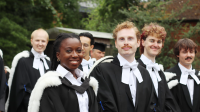
Graduation ceremonies are the culmination of students’ hard work and commitment, and a moment to celebrate the completion of their Cambridge degree.
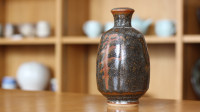
A display of works from the Bradshaw-Bubier studio pottery collection.
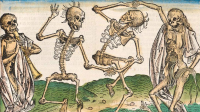
How we can develop ‘death activism’ – a variety of tactics and posthuman practices which celebrate death, its inevitability, its forms, from the slow to times of crisis, and how can trauma and mourning emerge as their own forms of expression, or even activism?
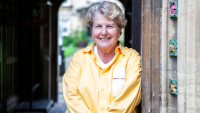
We are delighted to welcome Sandi Toksvig OBE as our speaker for Wolfson's prestigious Lee Lecture this year.

Join us for the 2024 Wolfson Research Event: an interdisciplinary academic conference organised by students to showcase the diversity of the research carried out by Wolfson students.







